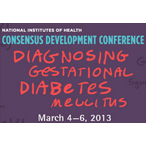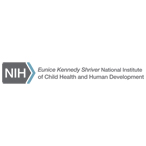Diagnosing Gestational Diabetes Mellitus (GDM)—NIH Consensus Development Conference (Rescheduled)
GDM is a condition that occurs when a pregnant woman who did not have previously diagnosed diabetes has high blood glucose levels. It is among the most common disorders of pregnancy, affecting between 2% and 10% of pregnancies in the United States, according to the Centers for Disease Control and Prevention (CDC).









 BACK TO TOP
BACK TO TOP